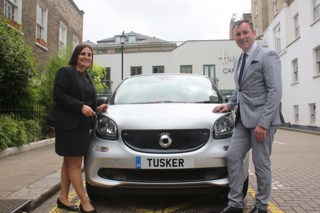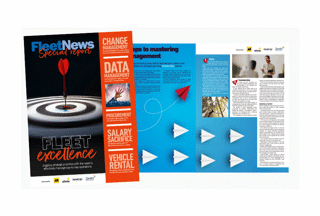Tusker has seen an increase in fleet size in 2017, while also significantly reducing their emissions levels.
The Society of Motor Manufacturers and Traders (SMMT) announced that for the first time in six years, the sale of new cars declined. Just 2.5 million cars were registered in 2017, with a further decline expected of up to 7% in 2018.
Conversely, Tusker saw an increase in its fleet of 5.2% in 2017 and are forecasting similar organic growth in 2018.
The leasing company says that car benefit schemes remain popular as a cost-effective way of running a brand new car, thanks to the way that they are funded through salary sacrifice.
The schemes, it says, continue to attract new drivers following the certainty received from the government in the Finance Act 2017, which confirmed that the financial benefits of tax and National Insurance (NI) savings remain for 98% of drivers on their schemes.
The SMMT also reports that CO2 emissions rose by 0.8% in 2017 for the total car market, bringing it to 121g/km CO2. As a committed carbon-neutral organisation who offsets the emissions for each car they supply, Tusker also bucked this trend. It saw a reduction of 5% in average emissions, from 104g/km CO2 in January 2017, to 99g/km CO2 currently.
Tusker continues to promote Ultra-Low Emission Vehicles (ULEVs). Due to the new Government legislation which makes cars with less than 75g/km CO2 more cost effective through salary sacrifice schemes, the company expects ULEV orders to continue to rise in total volume and as a percentage of their fleet throughout 2018.
Paul Gilshan, chief operating officer, said: “In a year that saw fewer cars ordered overall, Tusker’s fleet has continued to grow, which is testament to the popular product we have.
“The all-inclusive nature of our cars, together with the cost efficiencies we are able to provide, continue to make it attractive for an increasing number of drivers. And what’s better, our green car scheme has an average CO2 of less than 100g/km, which is a huge 22g/km CO2 less than the market as a whole.”


















Login to comment
Comments
No comments have been made yet.